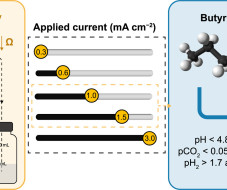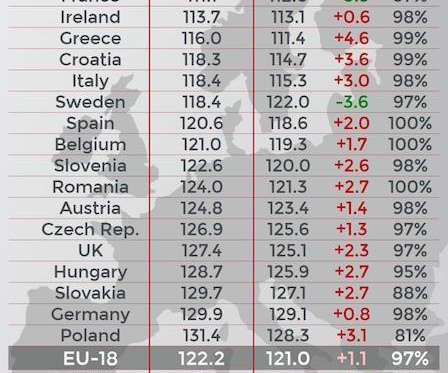Researchers use efficient microbial electrosynthesis cells to convert CO2 to butyric acid; upgrade to butanol
Green Car Congress
AUGUST 21, 2023
Researchers from University of Girona (Spain) successfully used electrically efficient microbial electrosynthesis cells (MES) to convert CO 2 to butyric acid. In an open-access paper published in the journal Environmental Science and Ecotechnology , they reported operating the low ohmic resistance (15.7 Romans-Casas et al.




















Let's personalize your content